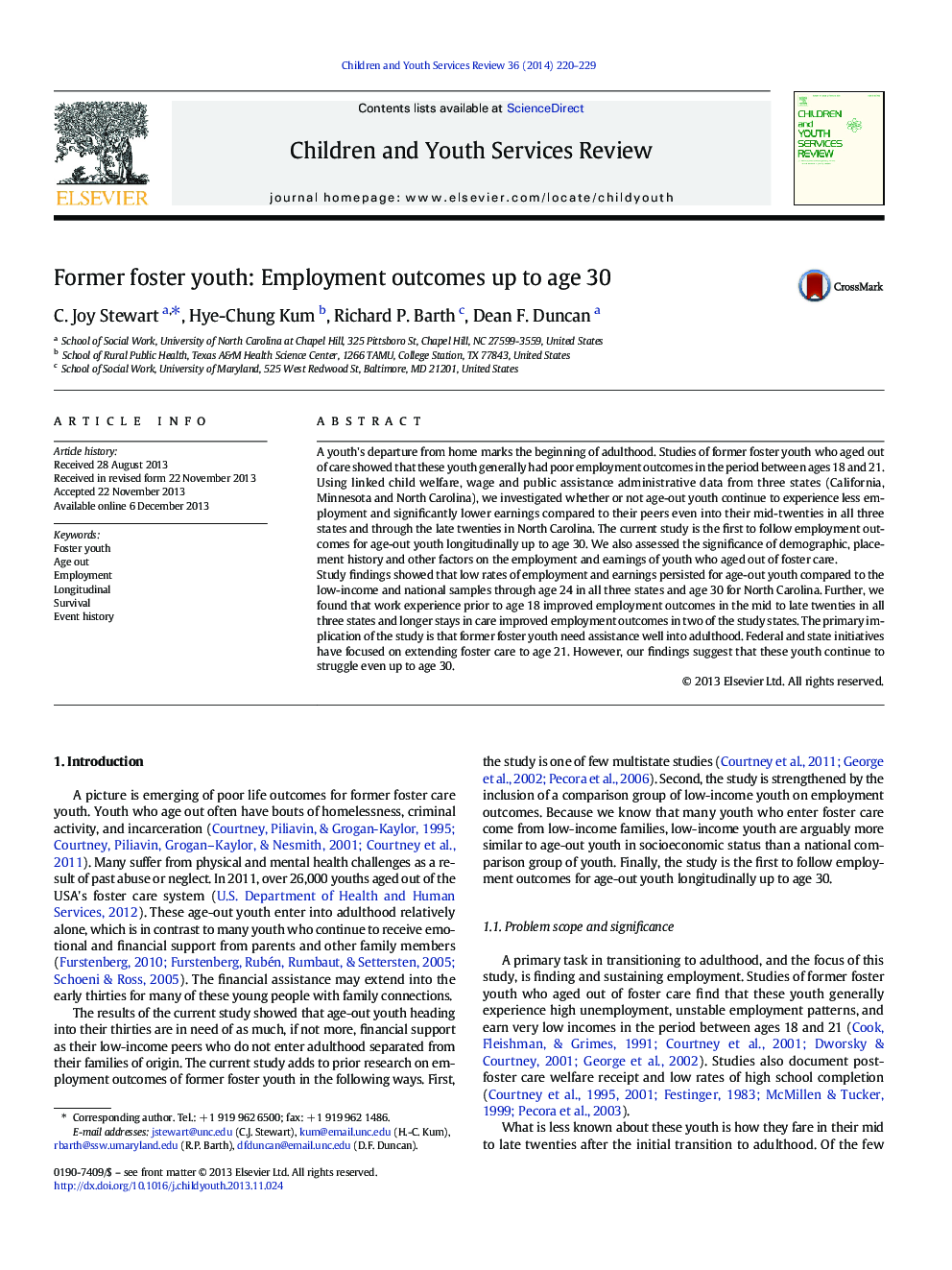| کد مقاله | کد نشریه | سال انتشار | مقاله انگلیسی | نسخه تمام متن |
|---|---|---|---|---|
| 346126 | 617801 | 2014 | 10 صفحه PDF | دانلود رایگان |
• Investigates employment outcomes for age-out youth in three states, CA, MN, and NC.
• First study to follow age-out youth longitudinally to age 30.
• Low employment and earnings persist to age 24 in all states and to age 30 in NC.
• Work experience prior to age 18 improved employment outcomes in all three states.
• Longer stays in care improved employment outcomes in two of the study states.
A youth's departure from home marks the beginning of adulthood. Studies of former foster youth who aged out of care showed that these youth generally had poor employment outcomes in the period between ages 18 and 21. Using linked child welfare, wage and public assistance administrative data from three states (California, Minnesota and North Carolina), we investigated whether or not age-out youth continue to experience less employment and significantly lower earnings compared to their peers even into their mid-twenties in all three states and through the late twenties in North Carolina. The current study is the first to follow employment outcomes for age-out youth longitudinally up to age 30. We also assessed the significance of demographic, placement history and other factors on the employment and earnings of youth who aged out of foster care.Study findings showed that low rates of employment and earnings persisted for age-out youth compared to the low-income and national samples through age 24 in all three states and age 30 for North Carolina. Further, we found that work experience prior to age 18 improved employment outcomes in the mid to late twenties in all three states and longer stays in care improved employment outcomes in two of the study states. The primary implication of the study is that former foster youth need assistance well into adulthood. Federal and state initiatives have focused on extending foster care to age 21. However, our findings suggest that these youth continue to struggle even up to age 30.
Journal: Children and Youth Services Review - Volume 36, January 2014, Pages 220–229
